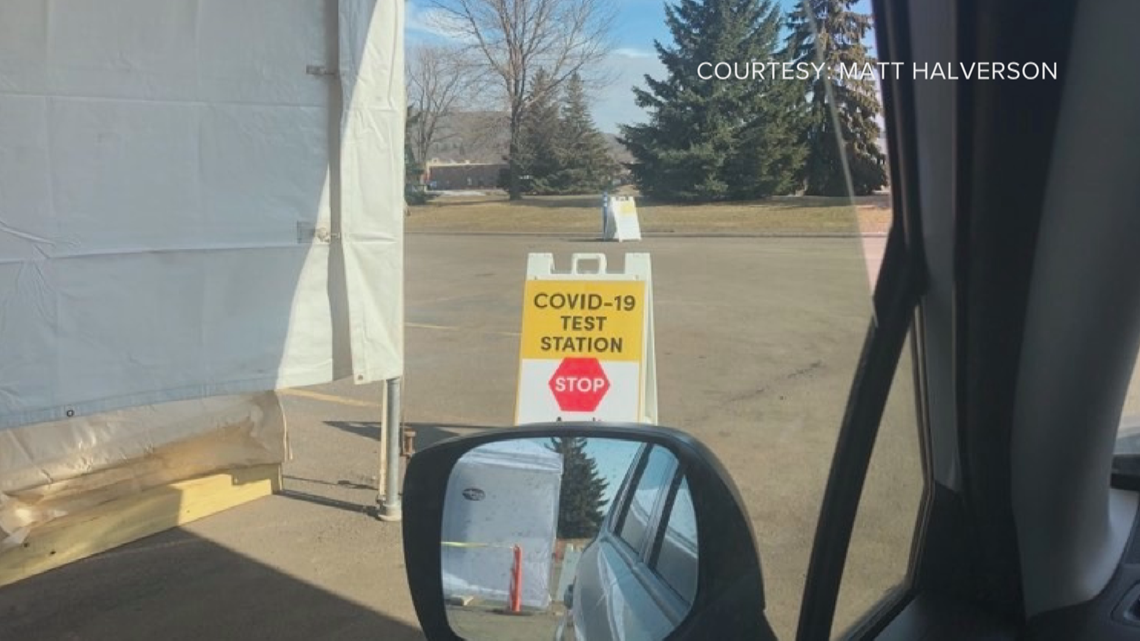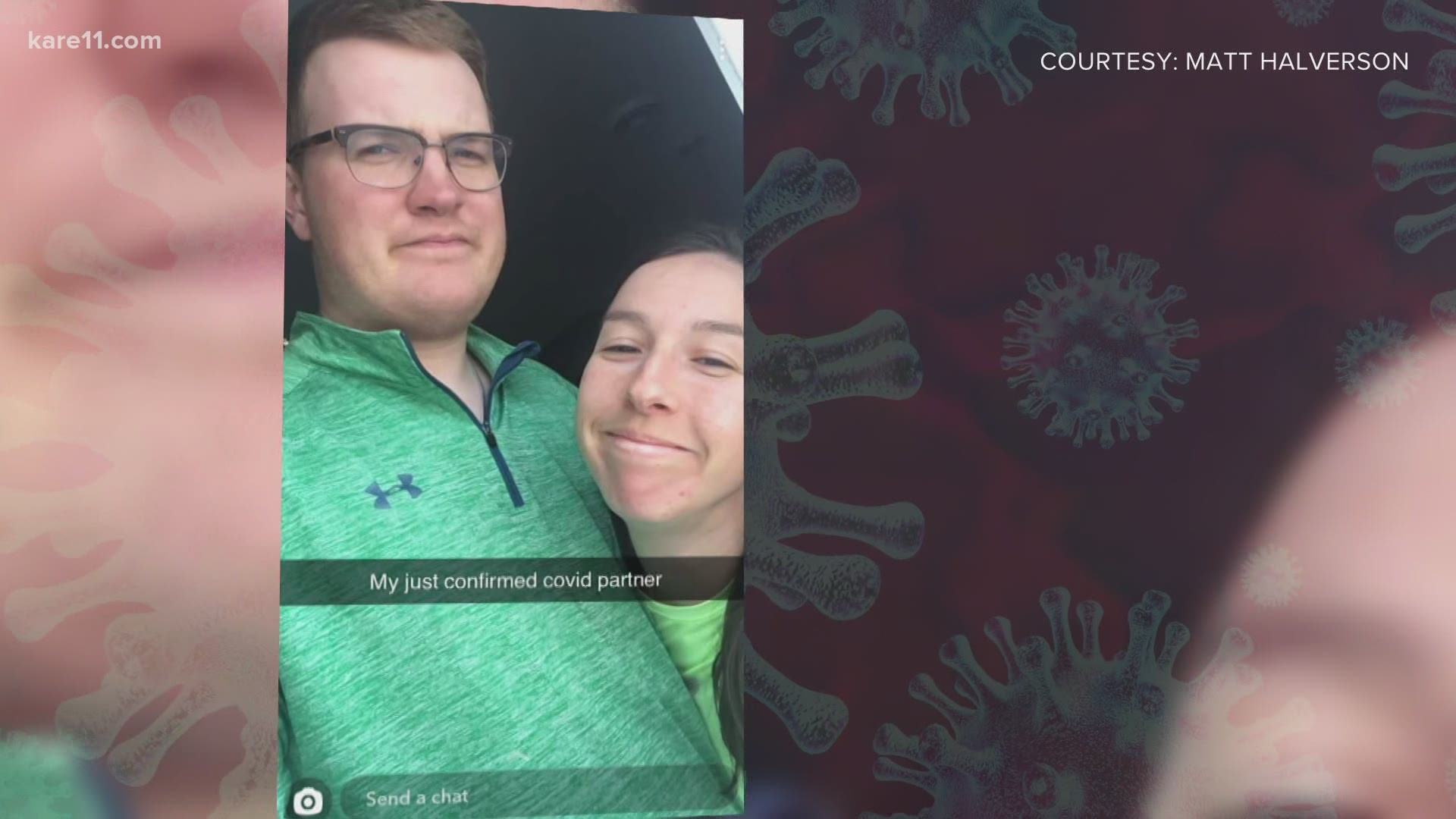DULUTH, Minn. — A few days after returning from a ski trip in Salt Lake City, Utah, Matt Halverson's fiance got a headache.
"I think the first thing we noticed was the headaches were really nasty," said Halverson, whose symptoms appeared a day later.
The seven-day trip hadn't gone as anticipated. About halfway through, the NBA suspended its season and the NCAA cancelled March Madness due to concerns about the coronavirus.
Halverson is a sports anchor in Duluth, and a former coworker of the writer of this article.
"The way that I gauge it is, sports started getting cancelled around day three or four [of our trip]," Halverson said. "And the ski resorts actually shut down. So we actually couldn't ski for our last two days out there."
It was somewhere along the trip home that Halverson thinks he and his fiance, Alyson Reum, got the virus which causes COVID-19. Other family members drove back from Utah, but Halverson and Reum flew. Once back in Duluth, they both tested positive for COVID-19. No one else on the trip did.


Halverson says once the symptoms started, they escalated quickly.
"I just remember a point in the day where I had to go lay down because I didn't have any energy," he said. "I had a headache and then, all of a sudden, I had a fever that spiked over 101 that lasted for two and a half days."
The fever would come back again, a few days after it went away, followed by a fierce cough.
"I sounded like a chainsmoker I was coughing so much," said Halverson, who also lost his sense of taste and smell, which he says just came back within the last month.
Neither of Halverson or Reum had to be hospitalized. He estimates COVID-19 kept them off their feet for about a week. But both 25 years old at the time and healthy, the disease came as a surprise.
"I never felt threatened for my life. It's just that you don't think this is going to happen to you, and it did," he said. "And how easy it happened. Like, when we were in the airport, we weren't talking to anyone. We just got on the flight, looked straight ahead, came home, got our bags, and left."
Halverson says after his and Reum's diagnoses, their friends, another couple in their 20s, also tested positive for COVID-19.
All four are in the age group that now claims the most cases of COVID-19 in Minnesota: People ages 20-29 account for more than 7,600 cases.
Some might get the virus and never know it. The CDC says while people of all ages can get severely ill, most young people have "mild" cases and can recover at home.
Halverson says his illness made him worry about his dad, who has asthma and an artificial esophagus.
"He actually only breathes at about 40 percent lung capacity, as is," Halverson said. "I don't think he would make it through [COVID-19], and he doesn't either."
Which is why Halverson wants others to take the virus seriously, no matter their age.
"Even people who are in their 20s can get this virus," he said. "And it could cause a lot of harm to those around you, which I guess is the bigger picture."
Halverson and Reum were supposed to marry this July. Because of COVID-19, they've postponed their wedding until July 2021.
KARE 11’s coverage of the coronavirus is rooted in Facts, not Fear. Visit kare11.com/coronavirus for comprehensive coverage, find out what you need to know about the Midwest specifically, learn more about the symptoms, and see what businesses are open as the state slowly lifts restrictions. Have a question? Text it to us at 763-797-7215. And get the latest coronavirus updates sent right to your inbox every morning. Subscribe to the KARE 11 Sunrise newsletter here. Help local families in need: www.kare11.com/give11.
The state of Minnesota has set up a hotline for general questions about coronavirus at 651-201-3920 or 1-800-657-3903, available 7 a.m. to 7 p.m. There is also a data portal online at mn.gov/covid19.

